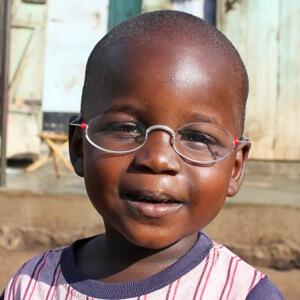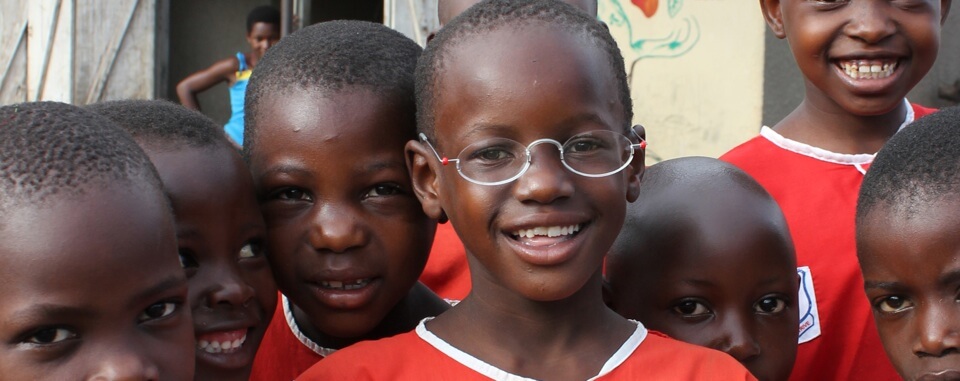 Affordable glasses
Affordable glasses
made by qualified opticians
Approximately 150 million people around the world need a pair of glasses, but cannot afford it. Without them, they cannot study,work, or provide for their family. In Rwanda, due to high population density, structural problems, and the frequently burgeoning conflict between the Hutu and Tutsis, poverty persists. The country's government is under criticism due to the lack of freedom of the press. If the generation growing up at the moment wants to claim their right to freedom of the press for instance, they need to know how to read and write.
Necessity
Glasses for poor people with poor vision
Activity
Glasses are manufactured locally by opticians
Countable effort
Number of people who could receive a pair of glasses
Result
Number of people who could resume their work or going to school thanks to the glasses
Systemic effect
Noticeable improvement in the lives, training and working conditions of the children and adults
Background
Not being able to see properly is a terrible handicap. Anyone of us who has a problem with their eyes quickly goes to the optician and buys a pair of glasses. For 150 million people around the world, their vision problem is an unlucky fate, because they don’t have the opportunity to go to the optician easily. The little girl who cannot go to school because she cannot read what is written on the blackboard. The 50-year-old seamstress who can no longer work, because she can no longer get the thread into the needle. The taxi driver who cannot see the street signs and many people more – in total 150 million. Grinding machines, necessary to grind new glasses, are often not available and eyeglasses on the local market are often too expensive.
The good deed
The OneDollarGlasses consist of a spring steel frame that is extremely light and stable. Its two surface-hardened plastic lenses are unbreakable and can be inserted into the frame without tools. Two colorful beads make every pair of glasses a small piece of jewelry. The glasses can be produced by the local people with the help of a simple bending device specially developed for it. In a 14-day intensive training men and women are trained as OneDollarGlasses opticians. A bending unit (complete optician equipment) costs around 2,000 Euros. This allows about 30,000 glasses per year to be produced. The entire material and manufacturing cost of glasses are just under one U.S. dollar (75 Euro cents) and are covered by the sale of eyeglasses. In order to raise awareness of the project, through todays donations the device will at first be handed out for free to the poorest of the poor.
Challenge
The challenge is to provide people - some of which have never seen glasses in their lives - with glasses. Additionally, the provision with glasses should be taken over by competent and reliable local people who will earn their livelyhood with this service.

AboutRwanda
Kigali
Capital
10,537,222 (2012)
Number of inhabitants
693
Gross domestic product per capita per year
167
Human Development Index
Rwanda is a densely populated, small country in East Africa. Because of its hilly landscape, it is often called the "land of a thousand hills". Rwanda is still suffering from the consequences of the 1994 genocide.
About the organization and further information
Association
EinDollarBrille e.V.
Siemens Empowering People Award 2013 Enactus Cup Award 1st place 2013




